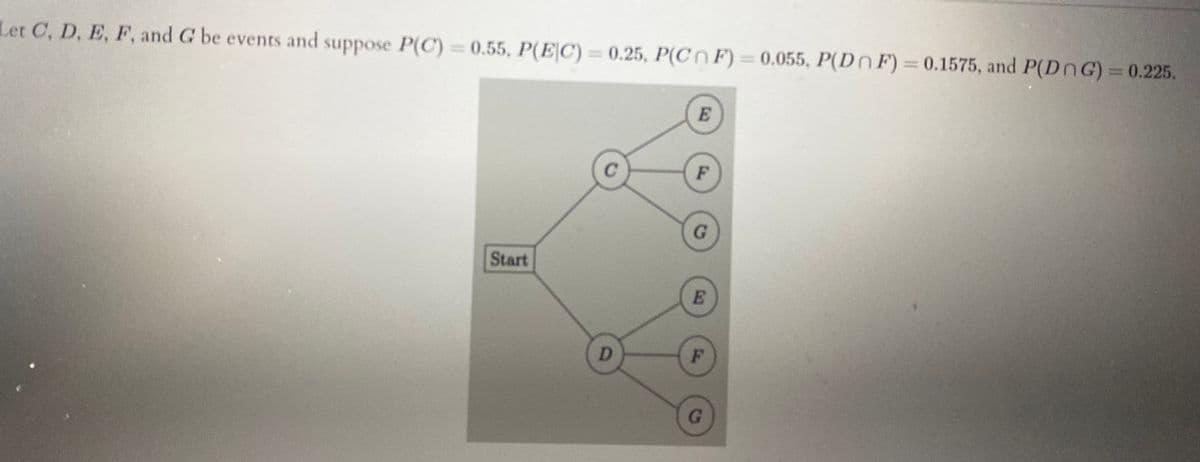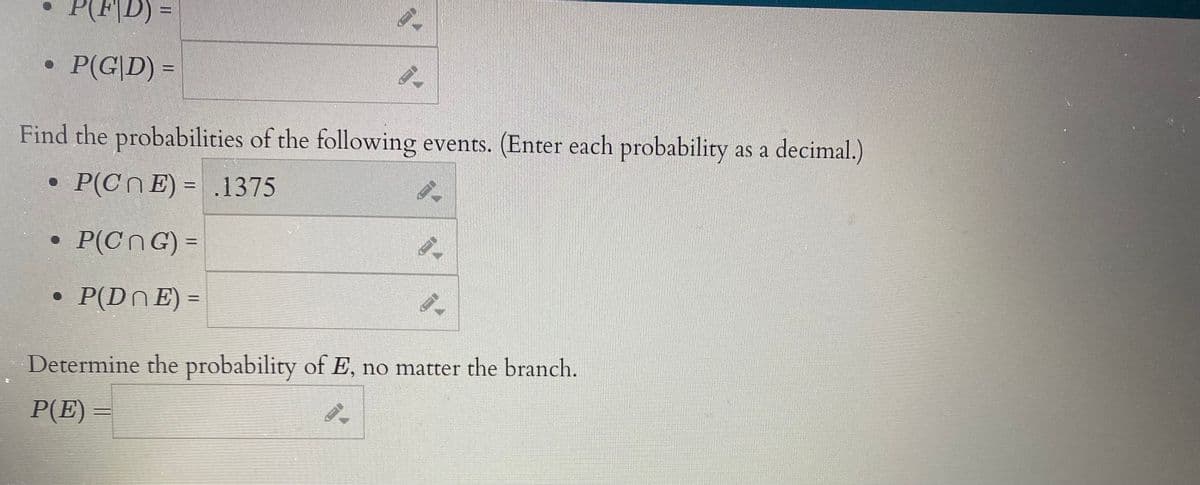P(G|D) = Find the probabilities of the following events. (Enter each probability as a decimal.) P(CN E) = .1375 P(CnG) = P(DnE) =
P(G|D) = Find the probabilities of the following events. (Enter each probability as a decimal.) P(CN E) = .1375 P(CnG) = P(DnE) =
Holt Mcdougal Larson Pre-algebra: Student Edition 2012
1st Edition
ISBN:9780547587776
Author:HOLT MCDOUGAL
Publisher:HOLT MCDOUGAL
Chapter11: Data Analysis And Probability
Section11.8: Probabilities Of Disjoint And Overlapping Events
Problem 2C
Related questions
Question
Please need help solving these few questions. Just the blanks

Transcribed Image Text:Let C, D, E, F, and G be events and suppose P(C) = 0.55, P(E|C) = 0.25, P(CnF) 0.055, P(DnF) 0.1575, and P(DnG)= 0.225.
F
Start

Transcribed Image Text:(F|D) =
• P(G|D) =
Find the probabilities of the following events. (Enter each probability as a decimal.)
• P(CnE) = .1375
• P(CnG) =
P(DNE) =
%3D
Determine the probability of E, no matter the branch.
P(E) =
Expert Solution
This question has been solved!
Explore an expertly crafted, step-by-step solution for a thorough understanding of key concepts.
Step by step
Solved in 2 steps with 2 images

Recommended textbooks for you

Holt Mcdougal Larson Pre-algebra: Student Edition…
Algebra
ISBN:
9780547587776
Author:
HOLT MCDOUGAL
Publisher:
HOLT MCDOUGAL

Holt Mcdougal Larson Pre-algebra: Student Edition…
Algebra
ISBN:
9780547587776
Author:
HOLT MCDOUGAL
Publisher:
HOLT MCDOUGAL